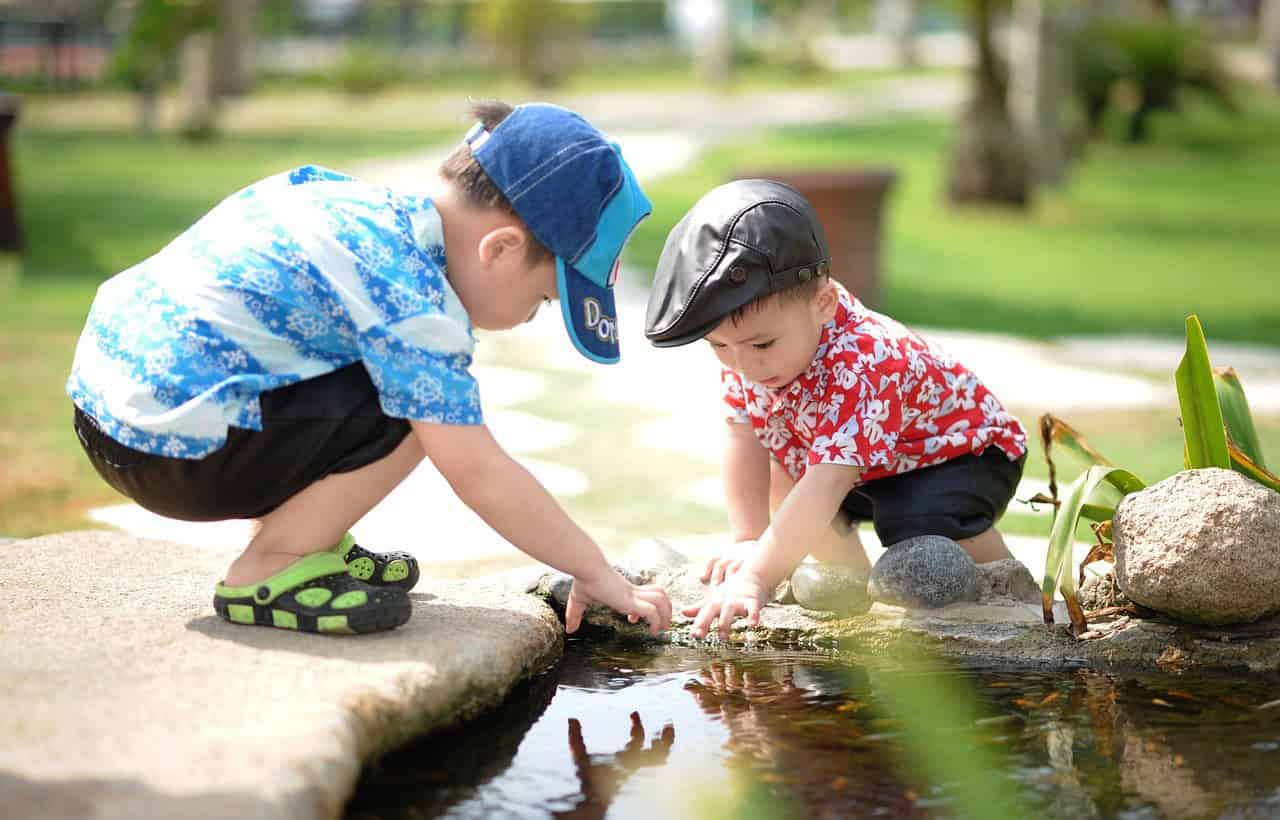Social interaction, communication, and connection with others are fundamental aspects of our lives that contribute to our overall well-being. For young autistic children, developing these essential skills can be particularly challenging yet crucial for their personal growth and social integration. As an ESDM early intervention provider, Amazing Kids in Melbourne focuses on delivering evidence-based, individualised services to address the unique challenges and needs of autistic children under five and their families. One critical area of focus is integrating peer interaction into early intervention, promoting the development of social skills, communication abilities, and relationship-building.
By making informed decisions and employing evidence-based ESDM techniques in their interactions and interventions, parents and therapists alike can help young autistic children thrive in social situations and build stronger connections with their peers.
1. Importance of Peer Interaction in Early Intervention
Peer interaction plays a critical role in the social and emotional development of all children, including those with autism:
- Natural exposure to peer interaction can help autistic children learn social norms and behaviours, enhancing their understanding of social cues, body language, and communication.
- Engaging in reciprocal play and interactive activities with peers supports the development of empathy, cooperation, and conflict-resolution skills.
- Participating in shared experiences with other children helps foster friendships and meaningful relationships, contributing to an autistic child’s sense of belonging, self-worth, and overall well-being.
2. ESDM Techniques for Encouraging Peer Interaction
Effective use of ESDM techniques can create a supportive environment where young autistic children can develop social skills and engage in peer interaction:
- Incorporate joint attention activities in your ESDM sessions, using natural reinforcements and modelling to guide children in engaging with their peers.
- Utilise structured playgroups or playdates to provide facilitated opportunities for social interaction, integrating ESDM techniques to promote skill-building and positive experiences.
- Encourage communication and language development through ESDM strategies, such as prompting and reinforcing verbal and non-verbal cues, allowing young autistic children to better express themselves and engage with their peers.
3. Partnering with Schools and Community Programs
Collaborating with schools, early learning centres, and community programs can create further opportunities for integrating peer interaction into your child’s autism early intervention plan:
- Work closely with your child’s educators and therapists to ensure that ESDM approaches are integrated into everyday classroom or school settings, promoting peer interaction and social skill development in a structured environment.
- Seek out inclusive community programs, such as sports teams, hobby clubs, or special interest groups, that foster diversity and enable young autistic children to meet and interact with their peers in a supportive, interest-based capacity.
- Consider partnering with other families of autistic children to create a network of support, enabling you to share resources, strategies, and peer interaction opportunities.
4. Creating Opportunities for Peer Interaction at Home
Creating a supportive and inclusive home environment is essential in facilitating peer interaction and social skill development for young autistic children:
- Host playdates or small gatherings at your home, utilising your knowledge of ESDM techniques to model and support appropriate social behaviours and interactions.
- Introduce family games and activities that encourage collaboration, communication, and shared experiences, helping your child develop social skills in a safe and familiar environment.
- Use technology and apps purposefully to support your child’s communication and social skills, while also encouraging appropriate screen time limits and balance between digital and face-to-face interactions.
5. Embracing Neurodiversity in Peer Interactions
Recognizing and celebrating neurodiversity within peer interactions fosters a culture of acceptance and understanding:
- Encourage neurotypical peers to embrace differences and learn about autism spectrum disorder (ASD) through education and awareness initiatives.
- Facilitate open discussions about autism within peer groups, promoting empathy, kindness, and inclusion among all children.
- Provide opportunities for autistic children to share their unique perspectives and talents, fostering a sense of pride and belonging within their peer circles.
6. Building Social Confidence through Role-Playing and Pretend Play
Engaging in role-playing and pretend play activities can boost social confidence and competence in young autistic children:
- Create scenarios or narratives that encourage imaginative play and social role-playing, allowing children to practice social interactions in a low-pressure, creative setting.
- Use props, costumes, and storytelling to make role-playing activities immersive and engaging, stimulating children’s imaginations and social skills development.
- Offer praise and positive reinforcement during role-playing sessions, highlighting children’s efforts and successes in navigating social situations, building their self-esteem and confidence.
7. Supporting Peer Mentoring Programs in Educational Settings
Implementing peer mentoring programs within schools and educational settings promotes peer interaction and social skill development:
- Pair autistic children with neurotypical peers as mentors, fostering reciprocal relationships where both parties learn from and support each other.
- Provide training and guidance for peer mentors to effectively support their autistic peers in social settings, promoting understanding, empathy, and friendship.
- Monitor and evaluate peer mentoring programs regularly, seeking feedback from participants and making adjustments as needed to ensure their effectiveness and inclusivity.
These additional sections expand upon the importance of embracing neurodiversity, utilizing role-playing for social skill development, and implementing peer mentoring programs to further enhance peer interaction opportunities for young autistic children.
Conclusion
Peer interaction is a vital aspect of autism early intervention that supports the growth and development of essential social skills for young children on the spectrum. With the guidance of ESDM techniques and a commitment to creating supportive, inclusive environments, autistic children can form meaningful connections with their peers and thrive in social situations.
At Amazing Kids, we understand the importance of peer interaction in the lives of young autistic children and are dedicated to providing evidence-based, individualised services to support their social skill development. Reach out to us today to find out how our ESDM early intervention services in Melbourne can help your child develop the social skills they need to build lasting connections and flourish in their interactions with peers.



